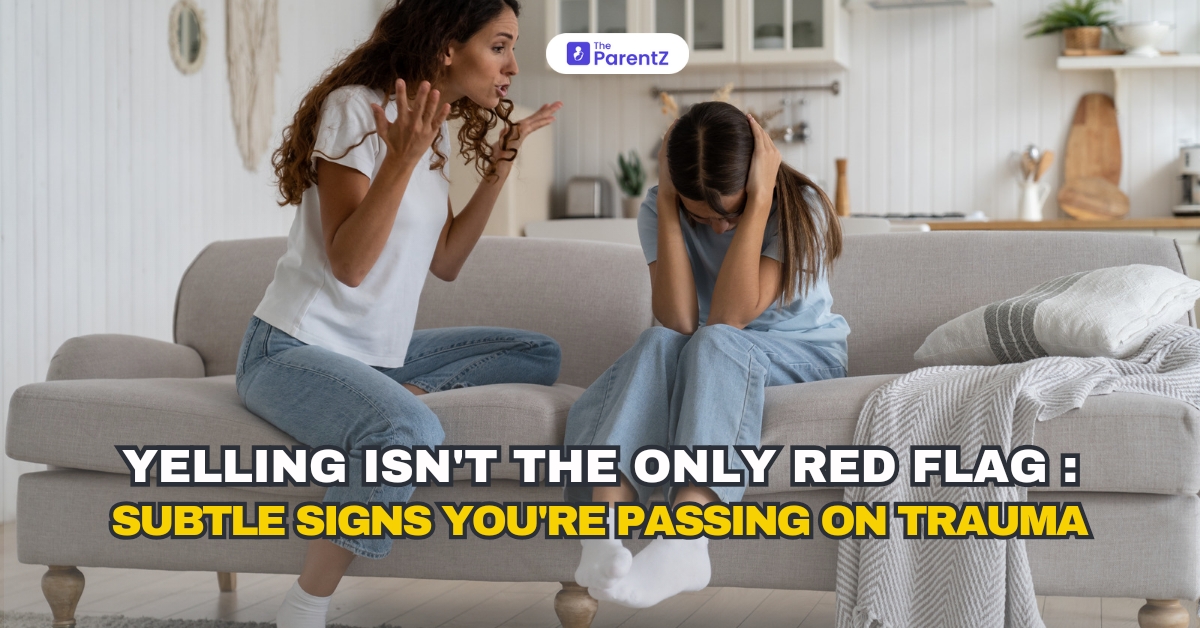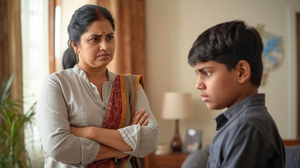We are all familiar with this image: a frustrated parent, voice raised, yelling at a child who seems bewildered or defiant. It’s a scene ingrained in popular culture, but the truth is, that unhealthy parenting goes far beyond raised voices. Yelling is a loud symptom, but there are quieter, subtler signs that can be just as damaging, perpetuating a cycle of trauma across generations.
Imagine a young tree struggling to grow. It needs sunlight and water, so it reaches towards the sky and sends roots deeper into the earth. Would you get angry at this natural process? Of course not. Yet, sometimes, parents react with frustration at their children’s equally natural need for attention, exploration, and expression. Getting angry at a child for “acting their age” is like punishing a young tree for wanting to grow.
This anger often stems from unresolved trauma in the parent’s own past. Perhaps they experienced similar treatment as a child, and now, without realizing it, they’re passing on that pain. It’s a cycle of hurt, a pattern where the adult who was once powerless against their own caregiver now wields that power unconsciously. They become the “bearer of generational trauma,” unintentionally shaping their child’s emotional landscape in a negative way.
Signs You’re Passing on Trauma
Yelling is just one way this trauma manifests. Here are some subtle signs that your parenting might be influenced by unhealed wounds:
- Constant Criticism: Do you find yourself nitpicking at your child’s every move, focusing on flaws rather than strengths? This can chip away at their self-esteem, leaving them feeling like they’ll never be good enough.
- Emotional Manipulation: Guilt trips, silent treatments, or conditional love all manipulate a child’s emotions to gain control. This creates an environment of fear and insecurity, hindering healthy emotional development.
- Emotional Neglect: While not yelling, you might be emotionally distant, unavailable, or dismissive of your child’s feelings. This lack of connection can leave them feeling isolated and unimportant.
- Living Through Your Child: Do you project your own unfulfilled dreams on your child? Pushing them towards activities or goals you couldn’t achieve yourself can put immense pressure on them, stifling their own sense of identity and purpose.
Impact of unresolved trauma on parents
The impact of these behaviors goes beyond the child. Parents who struggle with unresolved trauma often experience:
- Increased Stress and Anxiety: The constant pressure to be a “perfect” parent and the guilt associated with past mistakes can be a heavy burden.
- Strained Relationships: Unhealthy parenting patterns can negatively affect relationships with partners, friends, and extended family.
- Difficulty Maintaining Healthy Boundaries: Their own childhood experiences might make setting boundaries with their own children challenging, leading to enmeshment or emotional distance.
Tips for building a healthy relationship with children
So, how can we break the cycle and build a healthier parenting dynamic? Here are some tips:
- Seek Professional Help: Therapy can provide tools to understand your past and its influence on your parenting.
- Practice Self-Awareness: Recognize your triggers and emotional responses. Take time to calm down before reacting to your child’s behavior.
- Open Communication: Talk to your children about your feelings and encourage them to do the same. Build a safe space where they feel comfortable expressing themselves.
- Focus on Connection: Spend quality time with your children, doing activities they enjoy. This strengthens the parent-child bond and fosters trust.
- Practice Positive Reinforcement: Focus on praising desired behavior rather than dwelling on mistakes. This encourages positive development and boosts self-esteem.
Conclusion
Remember, becoming a parent isn’t about perfection. It’s about nurturing an environment where your child feels safe, loved, and supported to blossom into their unique selves. It’s about breaking the chains of generational trauma and building a legacy of healthy relationships. Don’t be afraid to seek help. Your child deserves a parent who is willing to grow alongside them.





Be the first one to comment on this story.